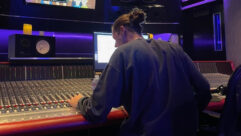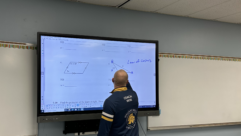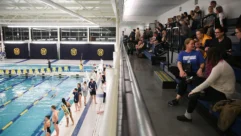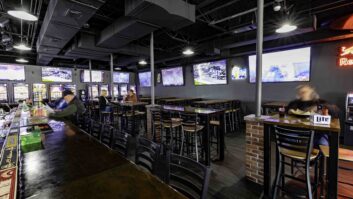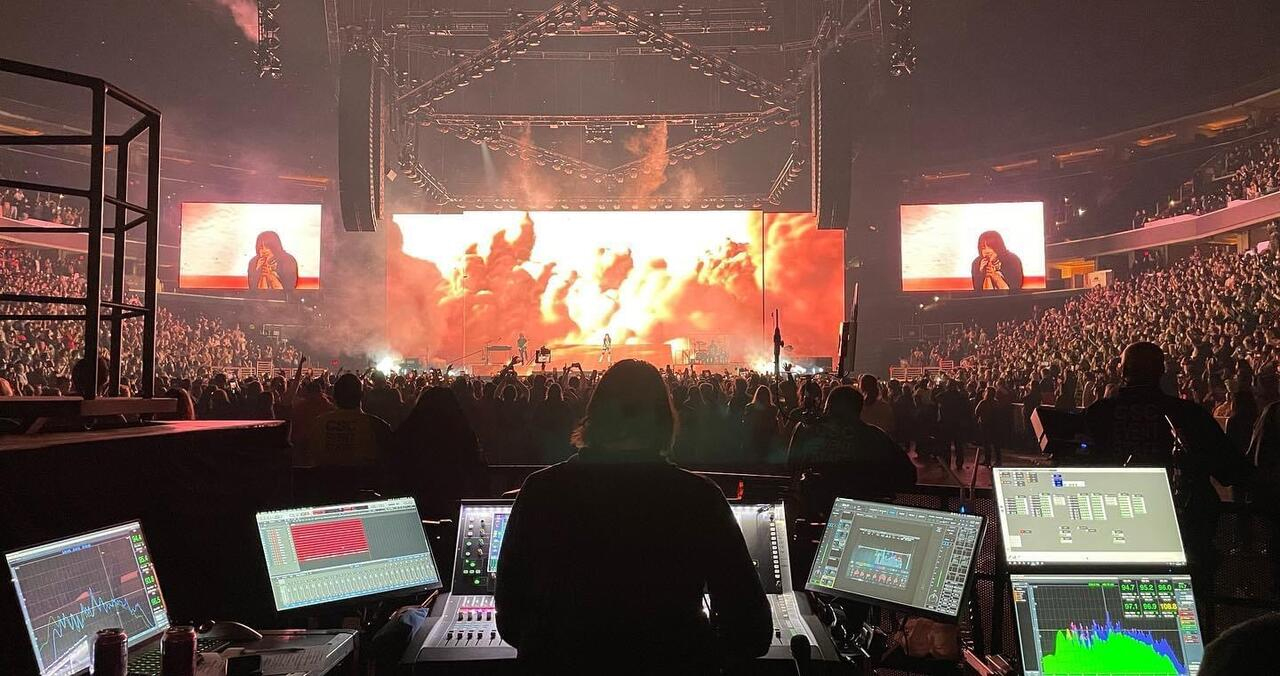
Case Study
Gilbert, Ariz., May 16, 2023 – While doing odd jobs in Circleville, a town in northeast Kansas with a population of just 153, Drew Thornton dreamed of being in a band and working in the industry’s best studios in America’s biggest cities.
Since then, Thornton has engineered in a major New York recording studio for two years, and his path has since taken him on the road. He is currently on tour as FOH engineer for Puscifer, and then going right back to Billie Eilish to wrap up this tour cycle.
“Growing up in such a small town, I was a mechanic, a welder, a grocery store clerk, a bag boy, a valet, cut cane out of milo fields, an organic builder, dish washer, and I waited tables…but no matter what I was doing, I always wanted to be good at whatever I did,” explained Thornton, whose love of music began at age five when watching his dad play acoustic guitar. “With all those jobs, one thing was for certain, I did not want a job where I watched the clock. I knew coming from a low income family that work was a big chunk of life, and I wanted that part to be fulfilling.”
Thornton always loved music and was in a couple different bands during grade school through high school. When he graduated high school, his younger band mates at the time decided to depart for college, so he decided not to quit and play all the instruments and record and mix himself. He ended up achieving that feat for an entire record and loved the process so much, he thought maybe there was a career in it for him. So, one restless night of wondering what he was going to do with his life, he started to search for information that could make that dream come true.
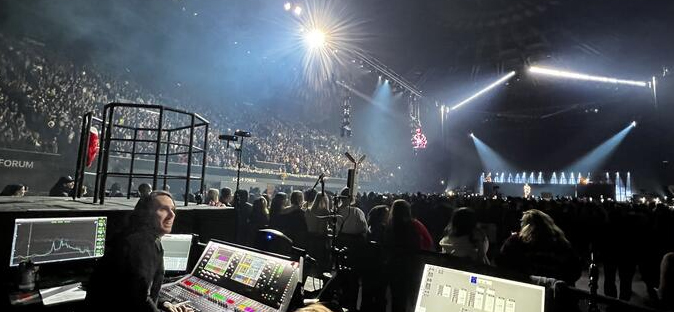
“My father played music, and my fondest memories were just sitting there watching him play his acoustic guitar,” he explained. “That’s where it all started for me. When the time came to figure out was I was going to do with my life, I began calling all the major studios in Los Angeles, New York, and Nashville and just asked questions to whomever I could get on the phone, including what was required in order to get started as an engineer. I heard good things about The Conservatory of Recording Arts & Sciences (CRAS), so my mother and I drove to Arizona to check it out. I knew after seeing what it had to offer, I was ready to get started.”
Thornton said he was definitely drawn to the fact that the school was open 24 hours, they had an intern placement program, small class sizes, and it was a relatively quick education cycle.
“I fell in love with the studio when I first started at CRAS,” explained Thornton, who graduated in 2007. “I altered my sleep schedule just to get in the Neotek room. I took morning classes, I would eat after class and go back to my apartment to sleep. Then wake up around 1-2am. Go to the studios and twist every knob I could. Then when the sun rose, I would go back to the apartment, make breakfast, and then head back to class. I loved it so much, I was drawn in for sure. Funny enough though, I feel like live sound wasn’t even on my radar when I was at CRAS.”
Go where the path takes you.
“I am very grateful for the counseling CRAS provided at the time as I had ideas of going to Chicago since it was close to home, but my counselor suggested that based on my 4.0 GPA, she highly recommended that I go to either L.A., New York City, or Nashville. So I chose New York. I got into Quad Studios with the help of CRAS’ placement program and that’s where I did my required internship hours. While I wasn’t there, I worked across the street at Sam Ash in the Tech Department.”
While interning at Quad Studios, Thornton ran into a couple other CRAS grads who were working at Legacy Studios at the time. One thing lead to another and Thornton went to work for Quad Studios as general assistant engineer.
“What a wonderful feeling it was to get that position,” Thornton said.
Life’s little paths generally lead to forks in the road, and that’s how Thornton moved into live sound as a FOH engineer.
Today, Thornton’s resume includes being a 19th Annual Parnelli Award Nominee and TPI Awards 2022 nominee for FOH Mix Engineer of the Year, as well as working as a FOH engineer for leading artists such as Billie Eilish, Omar Apollo, Finneas, Puscifer, Amy Shark, and more.
“If I could do it all again, I would do it the exact same way…although maybe this time I would put more energy into my live sound courses,” Thornton said with a grin. “To this day, I always recommend CRAS as I am fully convinced it is the best option if you want a formal pro audio education. I have a great friend that is also a very talented engineer, and he told me that every time he ran into a CRAS grad, they were always on it, and so I am very proud of what kind of reputation this school carries.”
Thornton added that he is very grateful for everything that has come his way. “I am about to go on tour with someone I grew up idolizing, and so it is funny how this world works,” he said. “If you try to be a good person, do the right things, be a hard worker, be a big dreamer, and always strive to keep learning, you, too, can get the chance to do things you never imagined.”
Don’t waste your time when you can always be learning. Take advantage of every moment. Learn everything you can in school because when you get that chance, you will have the information and the confidence which are keys for when you’re just starting out.
“I don’t know where I would be without CRAS,” Thornton concluded. “If you want this life, and you don’t know where to start, CRAS is an amazing place to begin. Take it from a kid who grew up in the sticks.”
# # #
About The Conservatory of Recording Arts & Sciences
The Conservatory of Recording Arts & Sciences is composed of two nearby campuses in Gilbert and Tempe, Ariz. A CRAS education includes broadcast audio, live sound, film and TV audio, music, and video game audio, all taught by award-winning instructors who have all excelled in their individual fields, including sound reinforcement, audio recording and production, digital recording, troubleshooting/maintenance, and music business.
CRAS structured programs and highly qualified teaching staff provide a professional and supportive atmosphere, which is complemented by its small class sizes allowing for individual instruction and assistance for students in engineering audio recordings. CRAS has been providing quality vocational training in audio recording for more than three decades. The curriculum and equipment are constantly being updated to keep pace with the rapid advancements in the music and sound recording industries. CRAS’ course offerings and subject matter have always centered around the skills and knowledge necessary for students’ success in the audio recording industries.
The 11-month program is designed to allow every student access to learn and train in all of the Conservatory’s studios which are comprised with state-of-the-art audio recording and mixing gear, the same equipment used in today’s finest studios and remote broadcast facilities, including Pro Tools 12, API Legacy consoles, SSL AWS consoles, Studer Vista consoles, and much more. All students must complete a 280-hour industry internship to graduate from the Master Recording Program II that may ultimately lead to industry employment.
For more information on the Conservatory of Recording Arts & Sciences, please visit www.cras.edu, contact Kirt Hamm, administrator, at 1-800-562-6383, or email to [email protected].
-30-


